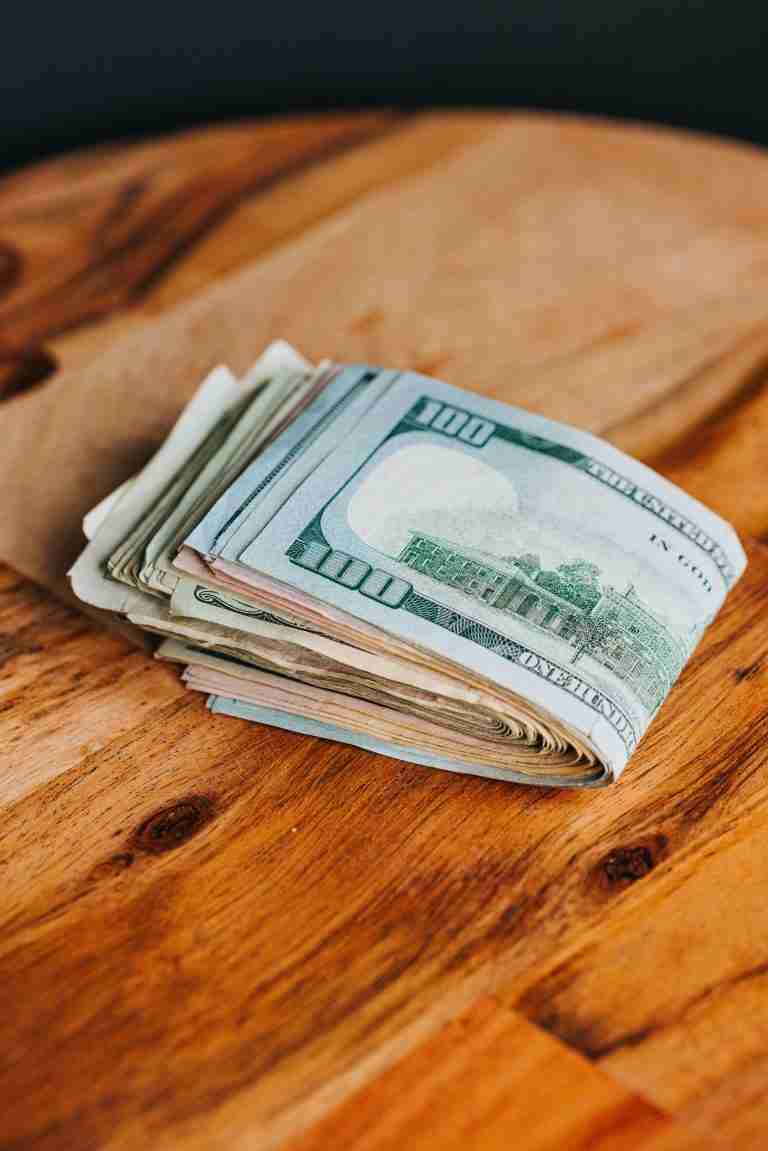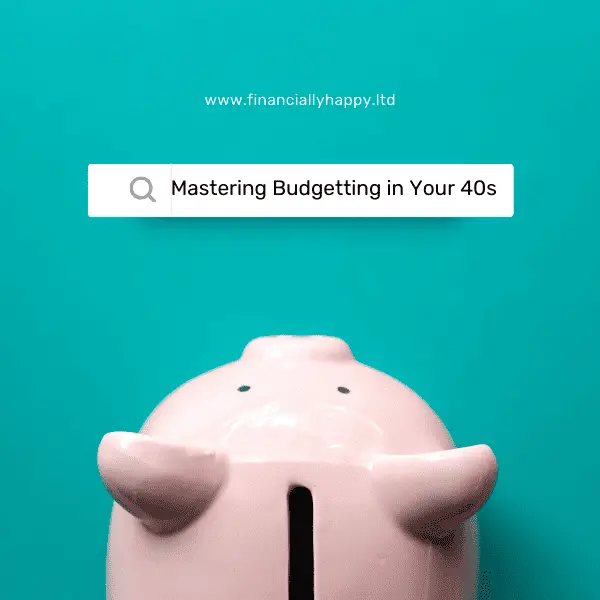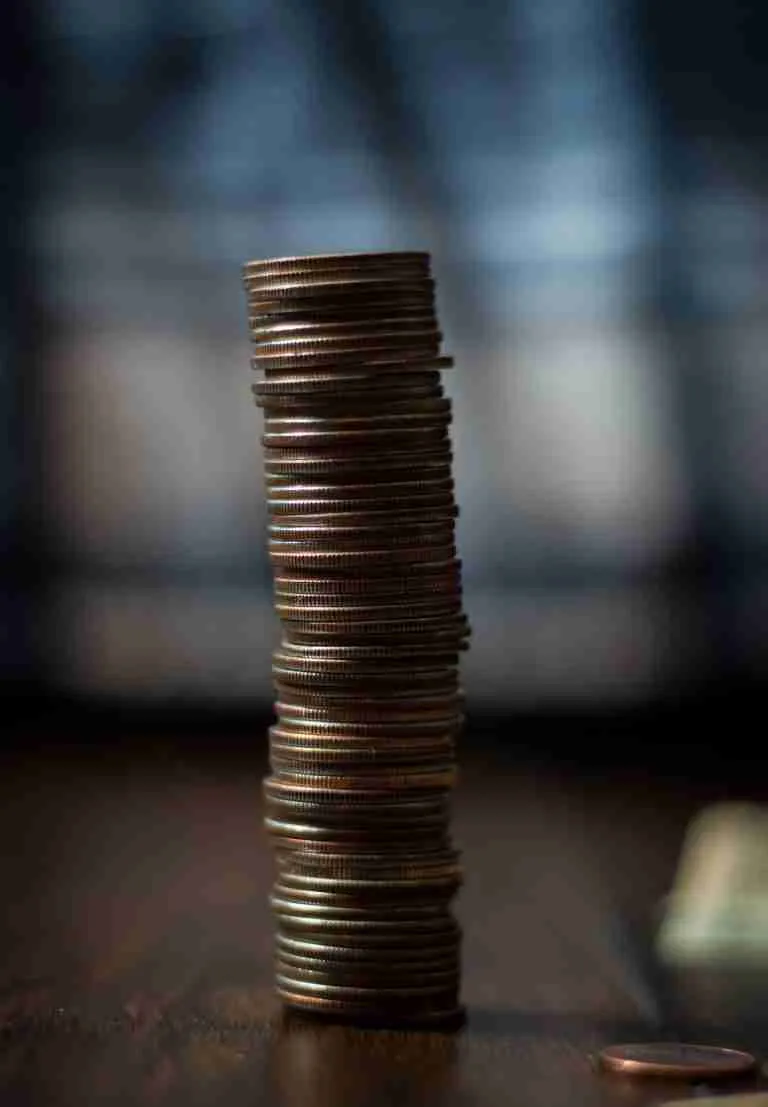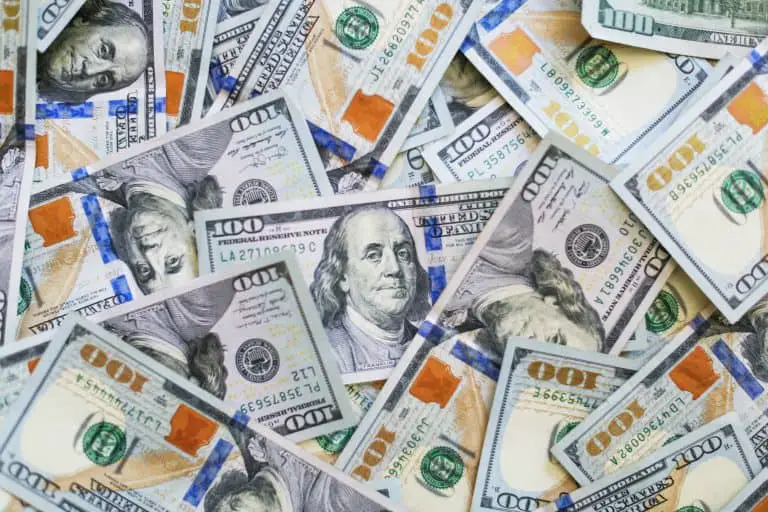Why is it important to pay yourself first? (The number 1 savings hack)
Why is it important to pay yourself first?
You need to pay yourself first because if you don’t, you pay everyone else and then have what’s leftover, which is often not much.
Having a disciplined way to manage your money will help set you up for life, achieve more of what’s important to you and avoid bumps in the road.
Read on to hear why paying yourself is one of the essential steps to financial success now and in the long term.

What is the concept of paying yourself first?
Paying yourself first means putting a part of your salary into your savings account as soon as you get paid.
You do this before you spend any money.
Before you start spending money on food, entertainment and stuff.
This clever trick means you have turned the savings challenge on its head.
Rather than spending and then saving, you are now saving and then spending.
What is a good percentage to pay yourself?
As much as you can, so that you can slightly feel it.
It also depends on what your goals are and when you want to reach them.
The percentage is probably in the teens if not higher.
But if you can do that start somewhere and then increase it every few months.
Saving more is likely to make progress to your goals a lot quicker—act according.
If you take it too easy on yourself, you will probably save as little as you can, and worse, still feel good about it.
If you are finding it easy to save, then you need to try and keep more.
This doesn’t mean extreme frugality but challenging yourself to save more using what you have more efficiently and effectively.
There does need to be a balance between your today self and your future self.
How do you pay yourself first?
The easiest way to do this is to automate it.
Set up an automatic transfer that automatically sends the money to your savings account/s when you get paid.
If you automate it, it takes out the weakest link in the savings chain: You.
If you leave it to yourself, you might well procrastinate, think you will do it later or double up next month.
You might well be your worst enemy when it comes to saving so take yourself out of it.
Where should I put my savings?
This is going to be connected to what you want to do with your savings.
What are your goals in every area of your life, and when might you need the money?
Here are a few areas where you might have goals or things to aim for.
- Health and fitness (run that marathon)
- Recreation and hobbies (that puzzle isn’t going to make itself)
- Family and Friends (nights in or out)
- Romance and Relationships (dates nights)
- Finance and net worth (this time next year, we will be millionaires)
- Career and business (is this the year to launch your side hustle?)
- Personal development (reading those books, taking that course)
- Spiritual goals (is it time for that silent retreat?)
Given the above goals and achieving these will help you understand where to put the money.
You need to keep an emergency supply of easy access money, an emergency fund of 3 -6 months living costs to make sure when things go wrong; you don’t need to go into debt to put them right.
Beyond this;
- For short term needs, savings accounts would be good.
- Medium to long-term, i.e. 5 years and beyond, you could consider investing in the world’s great companies through ISA’s and Pensions.
Summary Table: Why Is It Important to Pay Yourself First?
| Key Points | Description | Action Steps |
|---|---|---|
| Concept of Paying Yourself First | Prioritising a portion of your salary for savings before spending on anything else. | Automate the savings process to ensure consistency. |
| Good Percentage to Save | Aim for a savings rate in the teens or higher, depending on your financial goals. | Start with a manageable percentage and aim to increase it every few months. |
| How to Pay Yourself | Automate the transfer of money to your savings account as soon as you get paid. | Remove the human element (you) to avoid procrastination in saving. |
| Where to Put Savings | The choice of savings account depends on your short, medium, and long-term goals. | Consider savings accounts for short-term needs and investments like ISAs and pensions for long-term. |
| Emergency Fund | Keep 3-6 months of living costs as an emergency fund to avoid going into debt during crises. | Build this fund before focusing on other financial |
FAQ: What does pay yourself first mean?
What is the pay yourself first concept?
The pay-yourself-first concept is that before your start paying out your money for food, accommodation, or utilities, you set aside some of your money for yourself.
You pay yourself some of your money before anyone else and you place this in savings account for short, medium, and long-term needs,
It’s money that is put away for later and not for spending now.
How much should you pay yourself first?
You should really try to save at least 10 -15% and above. the more you save the stronger your financial position will be now and in the future.
If you save this, it should prepare you for good and bad times ahead.
However, saving only 10% may still mean you have to work for 30-40 years so increasing your savings rate will be the key to early financial freedom.
What does “pay yourself first” mean when it comes to saving?
It means you save some money first before you start spending any. YOu save on the day you get paid and then spend what’s left.
Put some of your pay packet away straight away into a savings account. Keep doing this and one day work will become optional. The opposit will mean you have to work for EVER.
Why should you pay yourself first?
Paying yourself first ensures that you prioritise savings or investments before covering other expenses. This habit fosters financial security and helps you reach long-term financial goals more effectively.
What are two advantages to the pay yourself first method?
Financial Security: Paying yourself first ensures you build a savings or investment cushion, enhancing your financial stability over time.
Habit Formation: Automating the process makes saving a consistent habit, making it easier to reach long-term financial goals.
Why is it important to pay yourself first instead of waiting until after your bills are paid?
Paying yourself first ensures that you prioritize savings, helping you build financial security and achieve long-term goals. Waiting until after bills are paid may leave little to no money for savings.
What is the quote about paying yourself first?
The popular quote about paying yourself first is: “Do not save what is left after spending, but spend what is left after saving.” This quote is often attributed to Warren Buffett.
Summary: Why is it important to pay yourself first
Paying yourself first is the key to building financial wealth and the path to financial freedom.
If you pay everyone else first, you will likely end up with very little.
Pay yourself as much as you can – remember your worth it.
Automate the process – take the weakest line – You – out of the process.
Keep your goals in mind to keep you on the right path.
Find the right accounts for your savings to meet your short, medium and long term needs.
You never know what’s coming round the corner and this is why its important to pay yourself first because no one ese will do it for you.
Anyway, those are my thoughts on why it is important to pay yourself first; let me know yours in the comments below.
If you want help figuring out money and life, get in touch below.
If you’ve made it this far, congratulations! You’re already taking steps towards a healthier financial future. But maybe you’re feeling a bit overwhelmed. Maybe the of budgeting, saving, and investing still makes you break out in a cold sweat. Don’t worry, you’re not alone, and help is available.
At Financially Happy Money Coaching, I understand money isn’t just about numbers. It’s about emotions, behaviours, and life choices. That’s why we’re here to help you take the stress out of money and build wealth that aligns with your values and lifestyle.
Whether you’re just starting out on your financial journey or you’re looking to take your finances to the next level, we’re here to guide you every step of the way. I’ll help you understand your financial behaviours, set realistic goals, and create a personalized plan to achieve those goals.
So, why wait? Start your journey towards financial happiness today. Remember, the best time to start was yesterday. The second best time is now.
Click here to schedule your consultation and let’s make your money work for you, not vice versa. 💪💰
Remember, financial freedom isn’t a destination; it’s a journey. And every journey is easier when you have a guide. So, let’s embark on this journey together and create a financially happy future. 🚀💸
📚 Financial Freedom Resources
- The Ultimate Guide To Building Your Savings to $100,000! 📘 is a transformative book that equips readers with principles, strategies, and the mindset 🧠 needed to reach a $100,000 savings goal 💰. It’s a journey towards financial freedom 🚀, challenging beliefs 🤔, embracing new habits 🔄, and overcoming obstacles 💪.
- How to Manage Your Finances: Your Guide to Financial Freedom 📘 is a comprehensive resource packed with practical advice on budgeting 💰, investing 📈, reducing debt 💳, and building wealth 💎. It’s an essential guide for anyone, novice or experienced, aiming to take control of their financial future and achieve financial independence 🚀.
Remember, self-study is a powerful tool for life and financial transformation. Happy reading! 🎉









